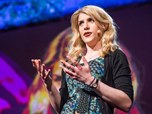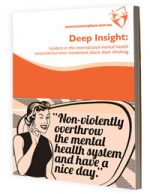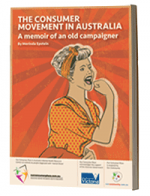 Links about madness, trauma & recovery that won’t be on the first page of a Google search.
Links about madness, trauma & recovery that won’t be on the first page of a Google search.
There are so many extraordinary thinkers out there in mental health. These are just some of my favourites…
People who inspire me
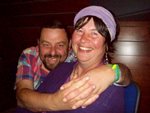
Ron Coleman and Karen Taylor. Ron and Karen are a dynamic duo of recovery. Ron’s story is truly inspiring, and I am proud to count both of these people as friends. Their wisdom has been life changing for me, and thousands around the world.
Rufus May. Rufus is a world-leading psychologist in the UK, who has a lived experience of being diagnosed with schizophrenia in his youth. I was lucky enough to have Rufus visit me one time I was an involuntary patient in the psych ward. Rufus showed extraordinary compassion, not just to me, but also to my voice. His approach showed me a new way to make sense of my distress and begin down a path of a new, compassionate relationship with my voice. Thank you Rufus
Dr Eleanor Longden. Eleanor is a world leading academic, speaker and psychologist in the fields of trauma, psychosis and dissociation. She survived a diagnosis of schizophrenia at the age of 18, and the hearing voices approach was a key part of her journey. Her TED talk has been viewed over 3 million times and has helped to change the way people think about hearing voices, and highlighted the role of trauma in psychosis.
Rachel Waddingham. Rachel is a powerhouse of hope and creative thinking about mental health. She led The Voice Collective in London, and has amazing insights into hearing voices, unusual beliefs and loads more.
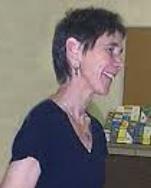
Shery Mead. Peer work is the fastest growing discipline in mental health. Those of us with lived experience of madness and recovery can bring unique perspectives in support roles. Shery Mead’s model of peer support, called ‘Intentional Peer Support’, is a world recognised and trauma informed approach.
Merinda Epstein. Merinda is one of the elders in the Victorian consumer/survivor movement. Most consumer roles in this state wouldn’t exist if it hadn’t been for Merinda’s work, and her work at Our Consumer Place document critical aspects of our issues and experiences. A long time, inspiring Australian consumer leader and thinker and inspiring cartoonist.
Mary O’Hagan. Mary was involved with starting the survivor movement in New Zealand. She’s advised the United Nations and been a mental health commissioner. Mary promotes peer work, consumer leadership and new ways of thinking about madness & compulsory treatment. Her recent book, Madness Made Me, is a tour de force. Watch this great clip about it.
Jacqui Dillon. Jacqui is a trainer, speaker, researcher, lecture and advocate for those of us who survive trauma and madness. She is a powerful advocate for women, for new ways of thinking about madness, the too-often unspoken truths about childhood abuse – and for recognising that ‘the personal is political’. Jacqui helped me to stop comparing my own trauma to others, and she seeded in me the idea of finding and pursuing my survivor mission.
Organisations and groups: By mad people, for mad people

The Icarus Project: “We are a support network and media project by and for people who experience the world in ways that are often diagnosed as mental illness. We envision a new culture that allows the space and freedom for exploring different states of being, and recognizes that breakdown can be the entrance to breakthrough

National Empowerment Centre: The National Empowerment Centre’s purpose says ‘we want people who are mental health consumers/survivors/expatients to know there is a place to turn to in order to receive the information they might need in order to regain control over their lives and the resources that affect their lives. That place is the National Empowerment Center’. The National Empowerment Center has loads of articles, stories, alternative resources and links to other organisations. (US).

MindFreedom: Mindfreedom are activists for human rights in the mental health system. They offer alternative ways of thinking, and they stand against involuntary treatment. Their site has human rights resources, personal stories, campaign information and lots more. (US).
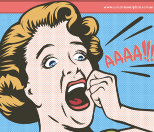
Our Consumer Place. Shared space for mad politics, articles, and really innovative and powerful resources. Lots of local links and info for consumers. (Australia)
Check out these Our Consumer Place publications…
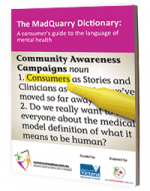
Dictionary
World Network of Users and Survivors of Psychiatry. WNUSP is an international organization of users and survivors of psychiatry that advocates for human rights of users and survivors, speaks internationally for users and survivors, promotes the user/survivor movement in every nation around the globe and links user/survivor organizations and individuals throughout the world.
Madness Radio. Explores ‘madness’ from beyond conventional perspectives and mainstream treatments, featuring survivors, authors, advocates, professionals, and artists.
Crisis? Need help? (but not from a traditional service?)
Living with unusual experiences and beliefs
The medical approach to mental health often talks about ‘delusional’ thinking, like paranoia. Delusions are considered symptoms of ‘psychosis’, and often diagnosed as ‘schizophrenia’.
The survivor perspective often takes a different view. It talks about unusual or different beliefs or alternative realities. It takes the view that our beliefs, no matter how different they might be, are a part of us. They are meaningful and it can be harmful when the mental health system tries to deny or change our beliefs, rather than accept and work with them.
Many consumer/survivor/expatient initiatives and resources that explore ways to reduce our distress by learning to understand and live with unusual beliefs, rather than denying them or trying to get rid of them.
Accepting Alternative Realities – Dr Rufus May
National Paranoia Network: (UK)Approaches to living with unusual and alternative beliefs
’Don’t Confront? Don’t Collude?: Exploring our beliefs about delusions’ Thought provoking short film by Rachel Waddingham
Hearing Voices
Intervoice: The international hearing voices network Working across the world to spread positive and hopeful messages about the experience of hearing voices.
A practical guide to coping with voices – by Intervoice
’The Power of the Narrative: Video by Peter Bullimore. Talks about trauma as well.
Trauma and mental health
Ron Coleman’s story of hearing voices, trauma and recovery
Jacqui Dillon:Trainer and speaker with lived experience of trauma, dissociation and madness
Mental Health Coordinating Council: Trauma-Informed Care and Practice
ASCA: Adults Surviving Child Abuse
Medication, ECT and human rights
The Harm Reduction Guide to Coming Off Psychiatric Drugs
If you’re thinking about reducing or coming off psychiatric meds, this is a fantastic resource. It gives a balanced view about the pros and cons, and practical ideas to help you make your own choices.
The Critical Psychiatry Network Read blogs and articles fron a network of psychiatrists who are critical of existing, primarilly biochemical approaches to mental health
Mad in America An international network of writers and thinkers that are rethinking psychiatric care

